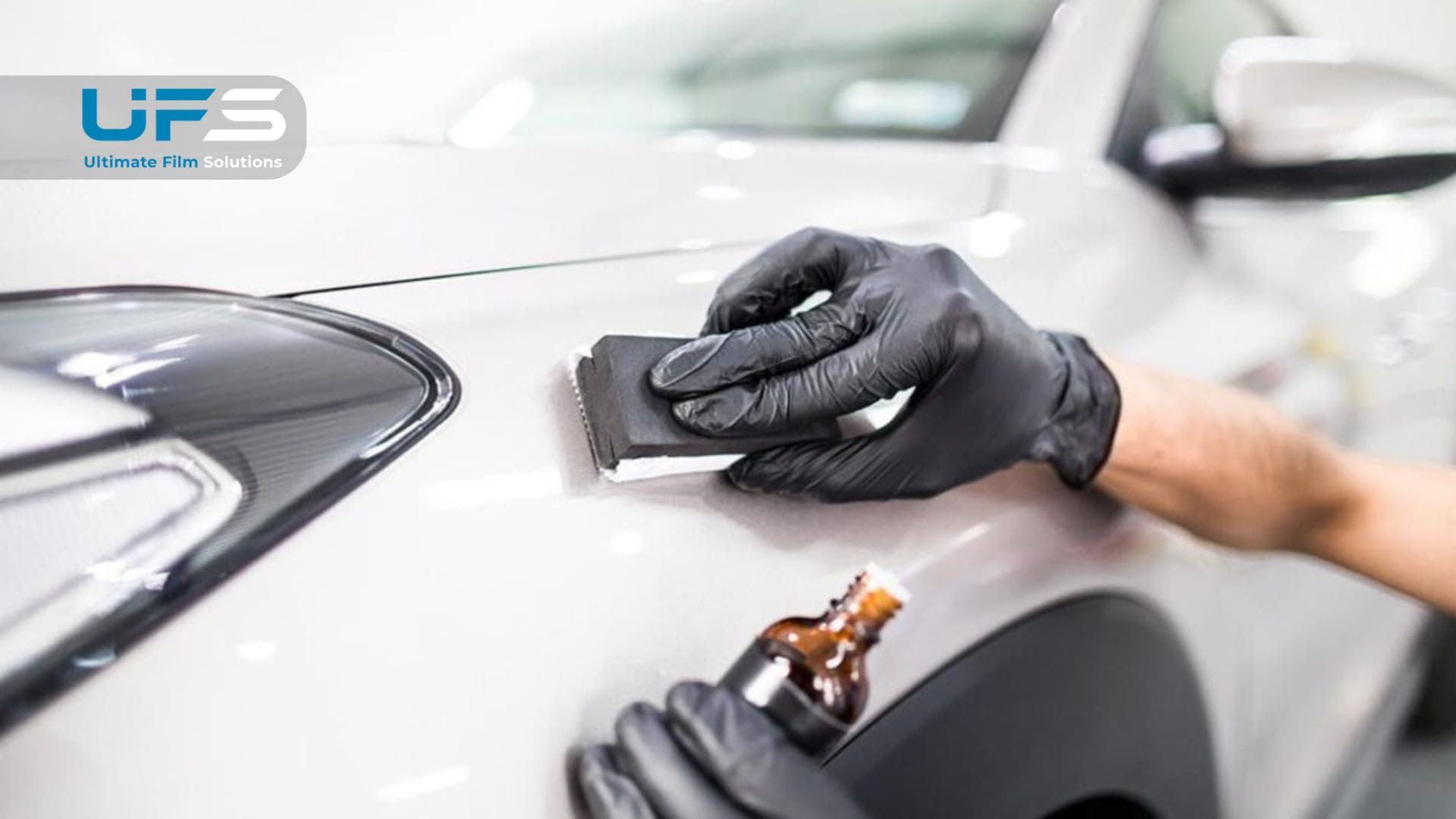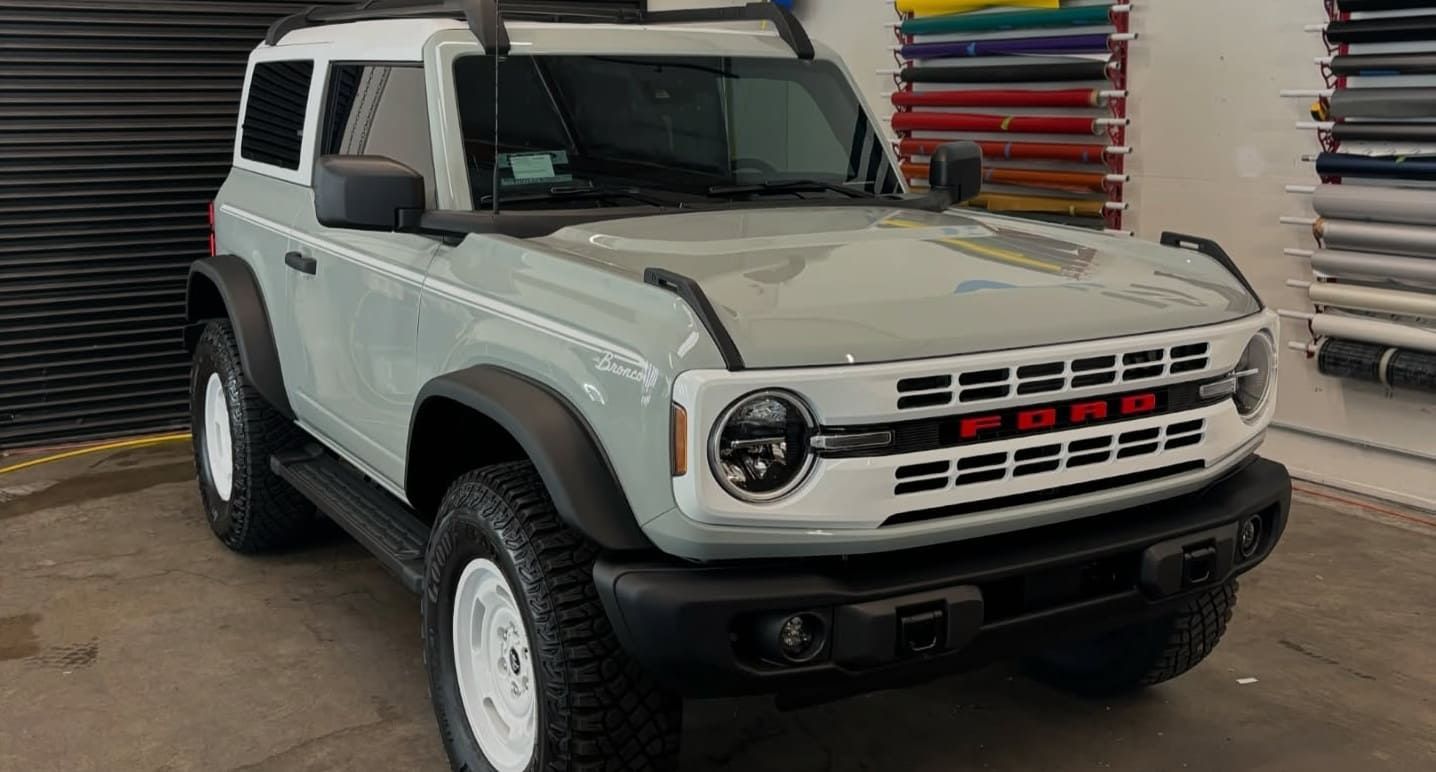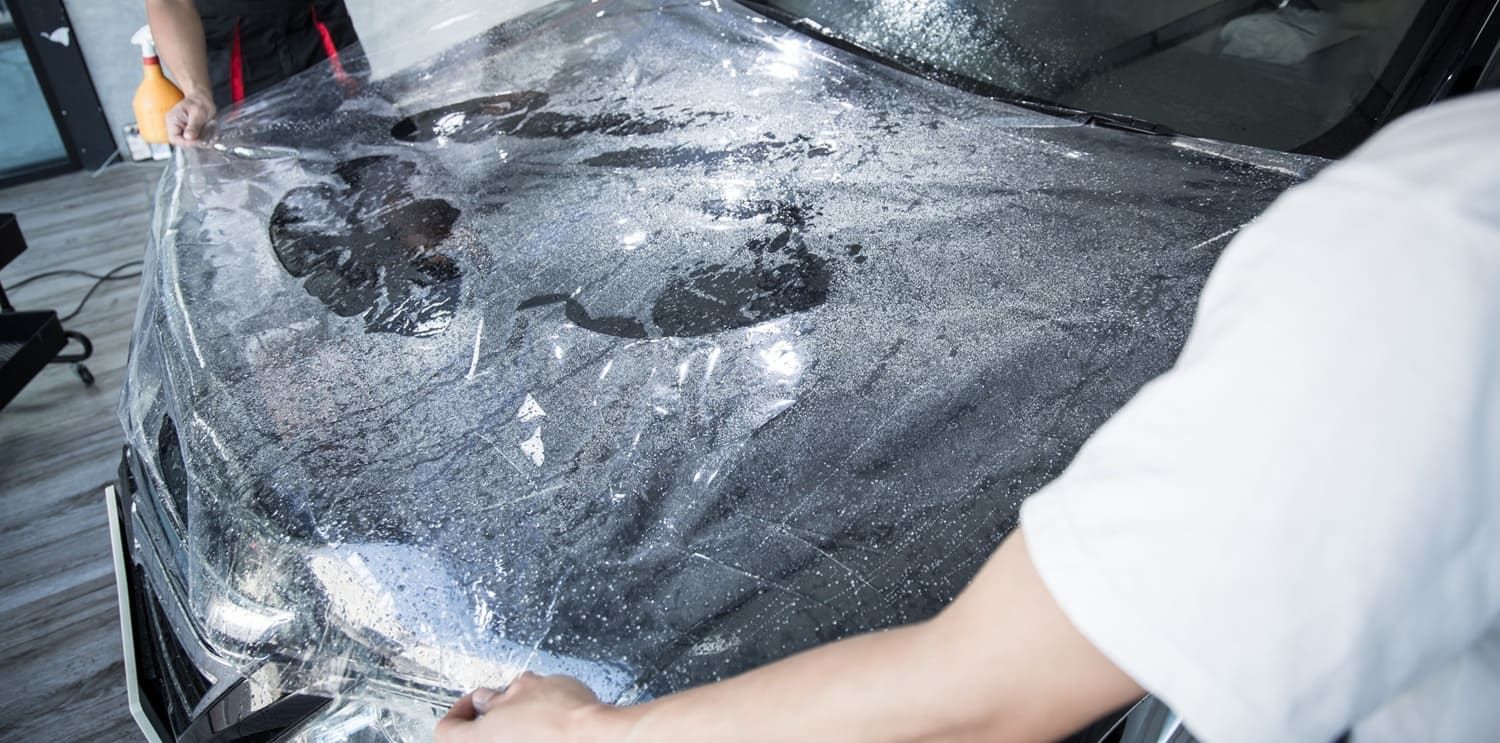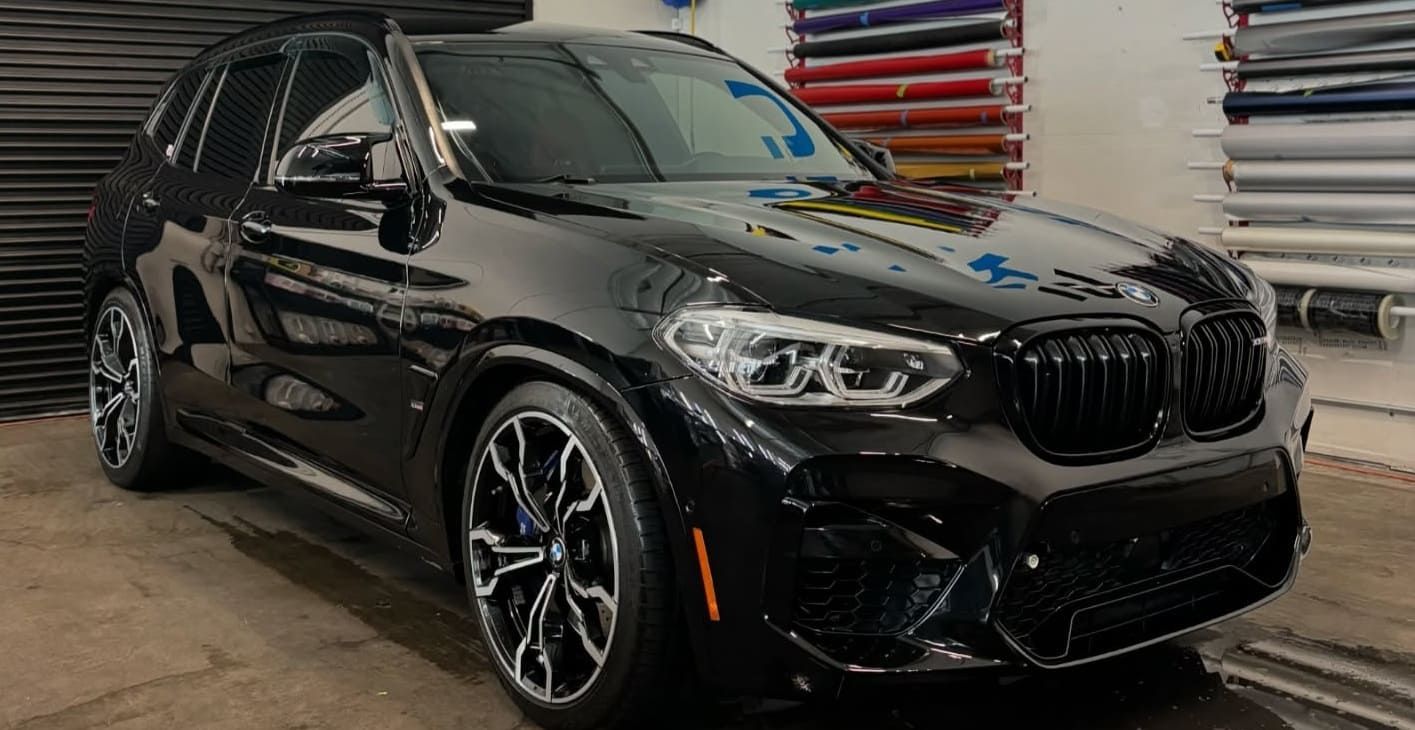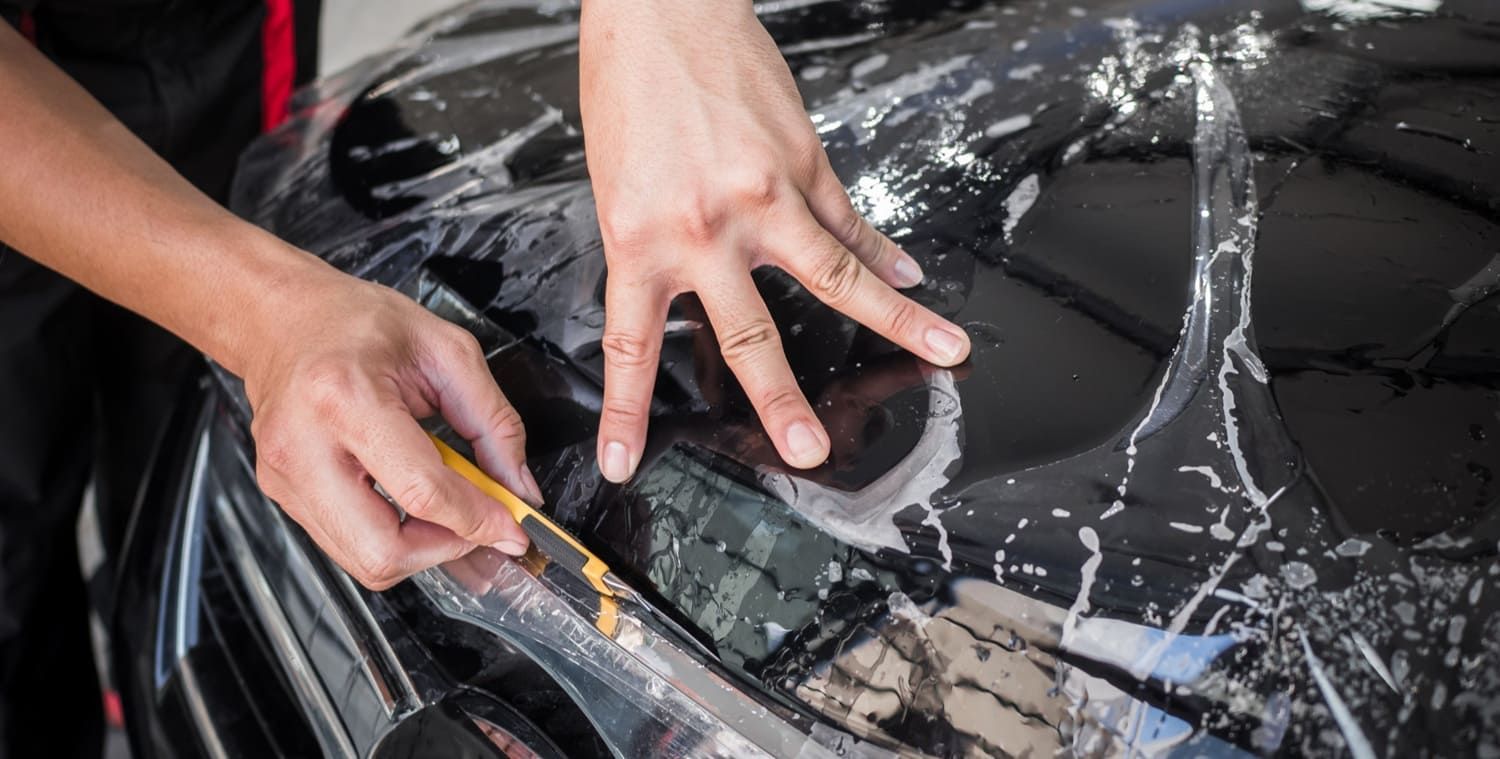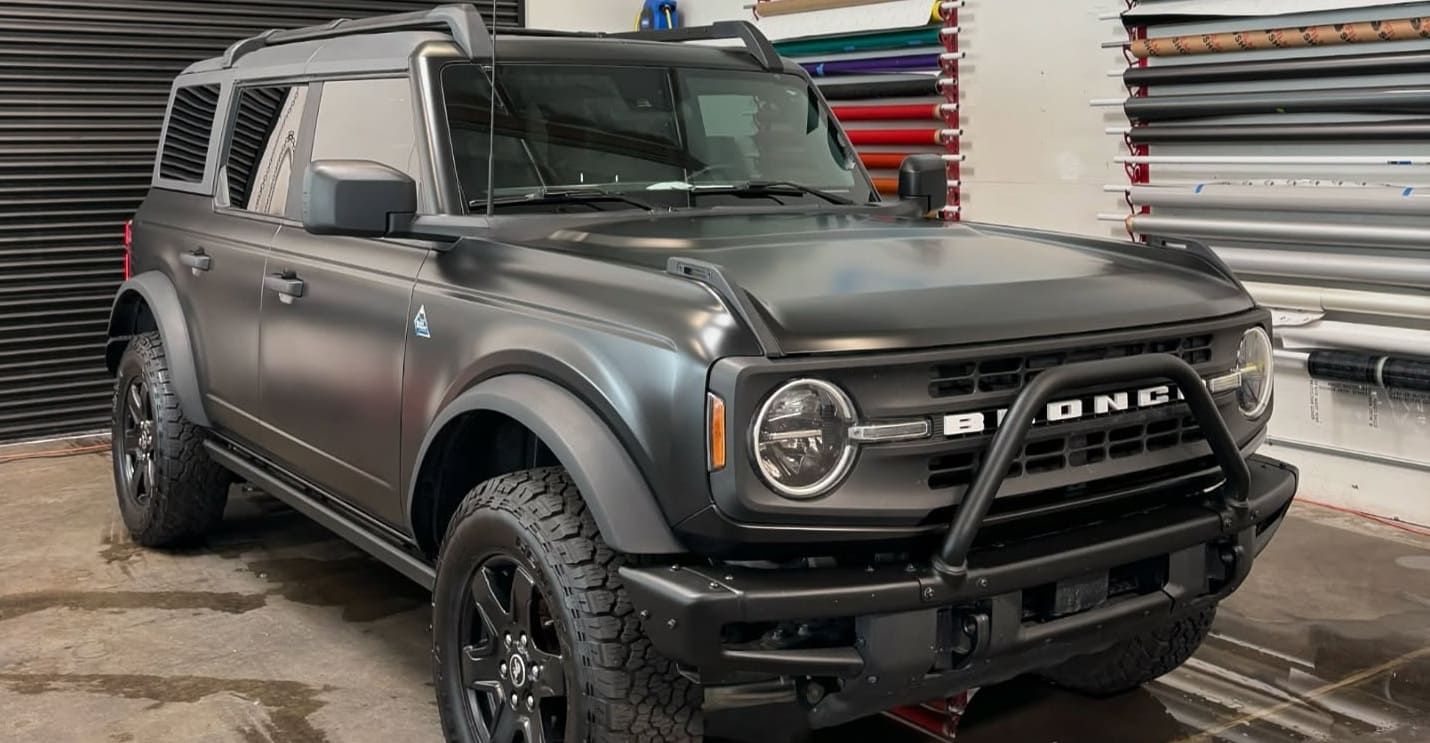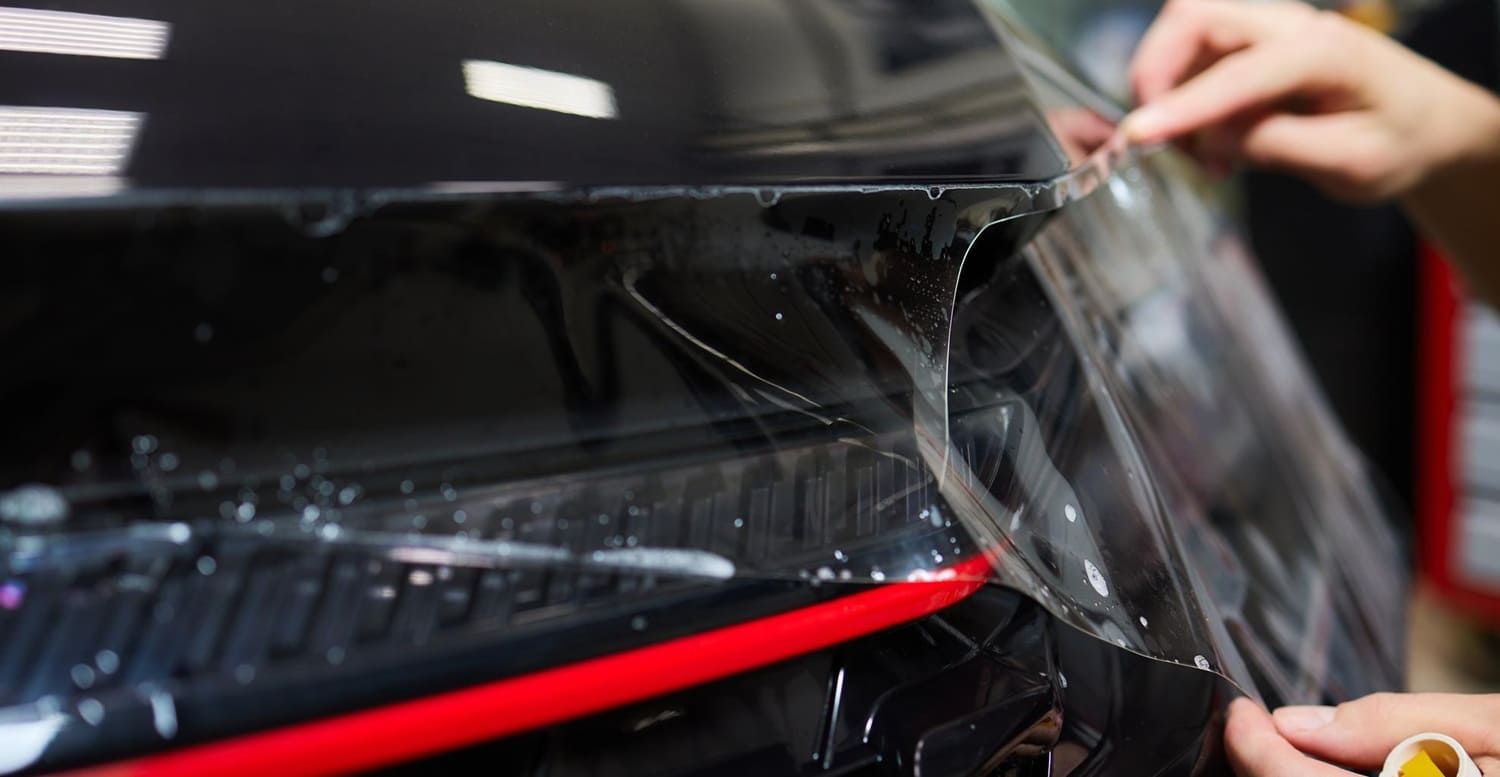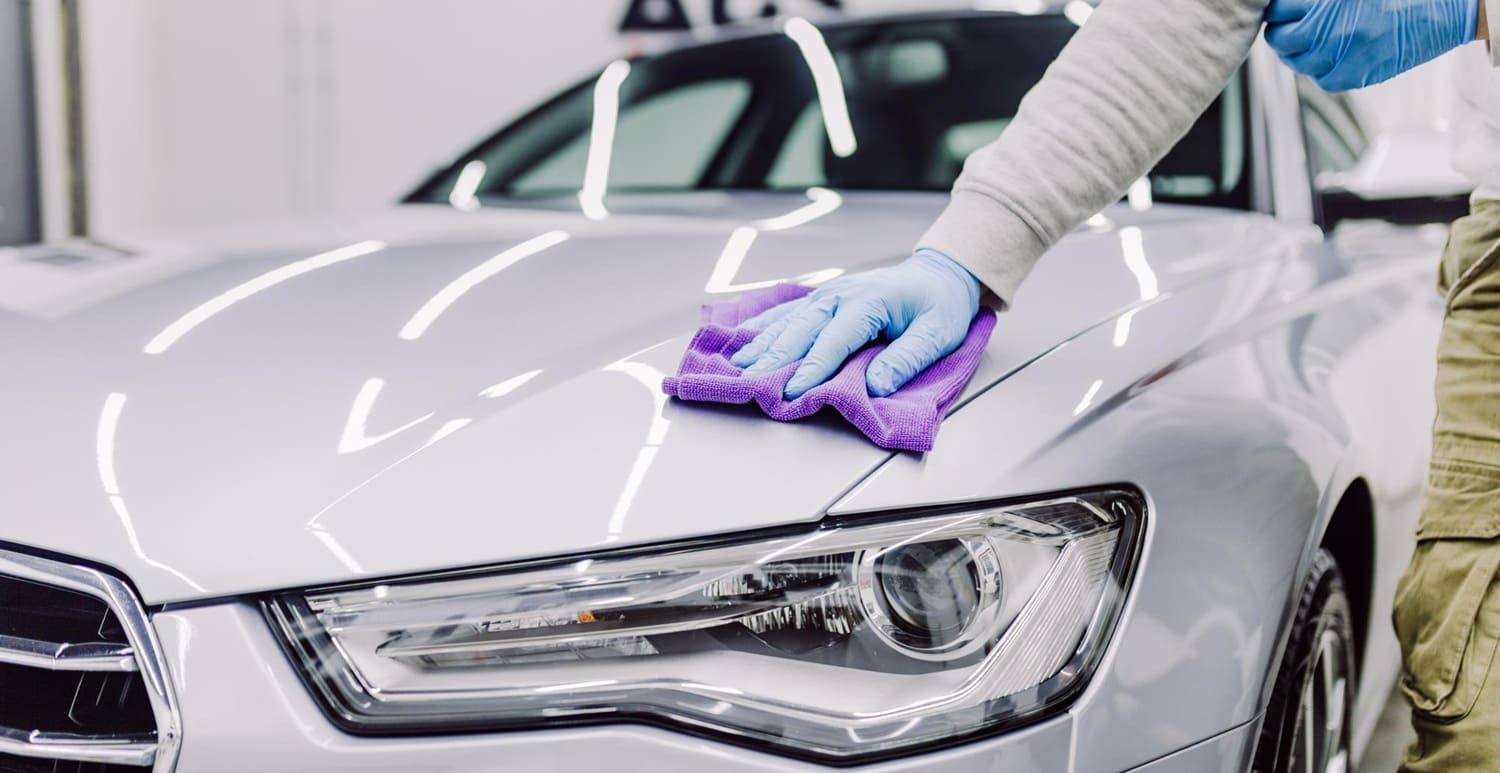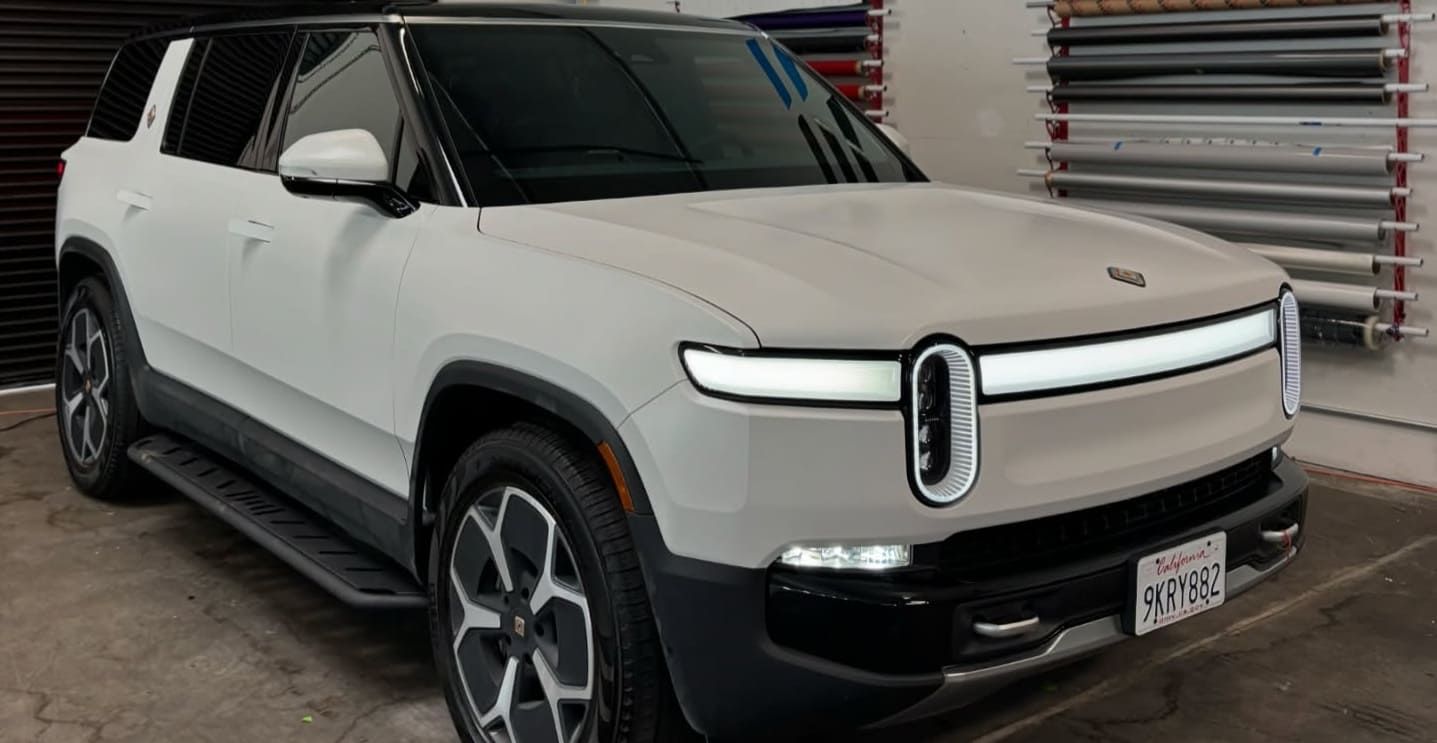The Properties of PPF: Does it Really Self-Heal?
PPF that contains elastomeric polymers can repair itself from minor scratches or tears with heat. Find out more about the properties of PPF here.
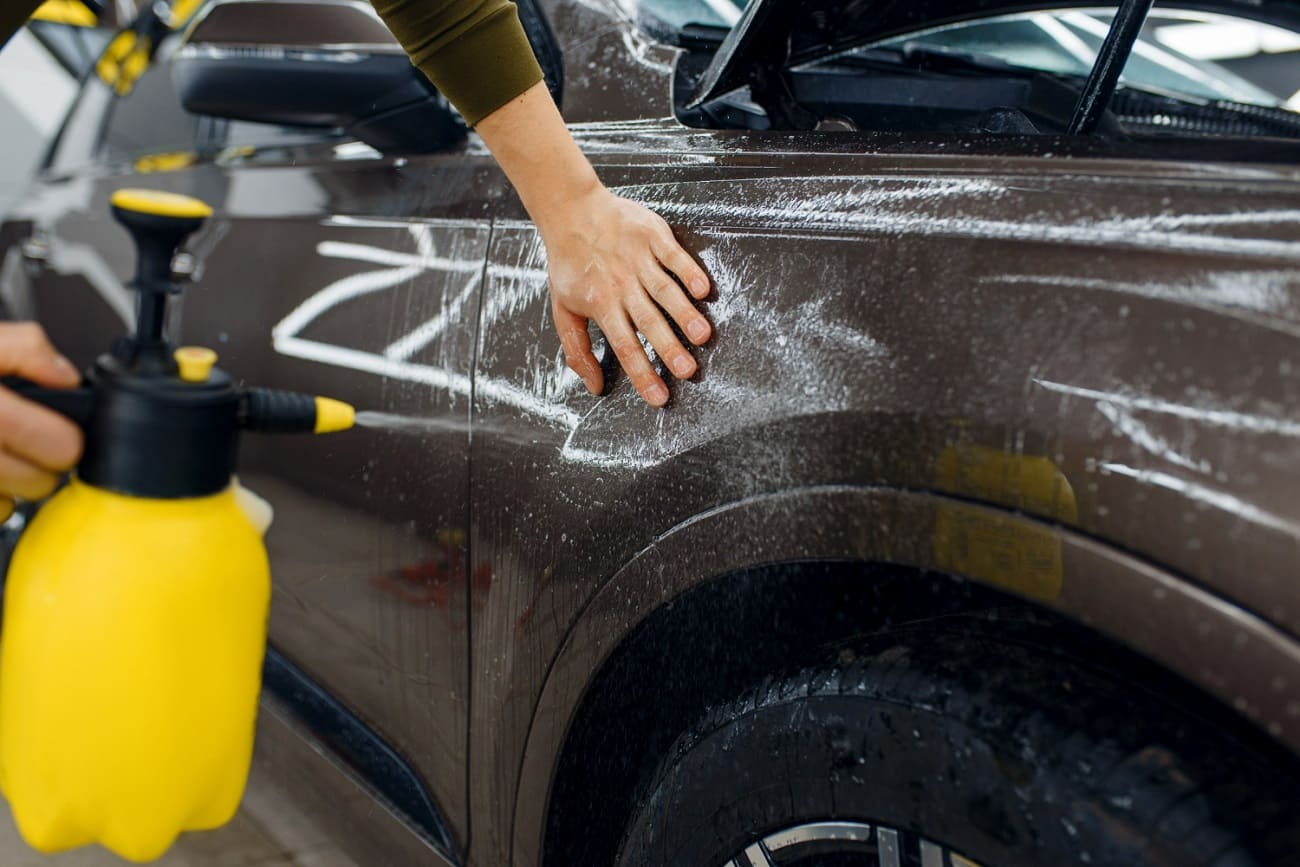
Did you know that a standard car paint job can cost up to $3,000? If you want your car 'showroom ready,' you could spend up to $20,000 decking it out with custom paint. Rock chips and scratches are some reasons you may consider taking your car in for a new paint job.
But did you know that there are ways you can protect your car against scrapes? A paint protection film is a self-healing exterior cover that protects your car's paint when you hit the road.
If this sounds too good to be true, you aren't alone. Many people are skeptical about something that could save them thousands of dollars, so we have put together a complete guide for you. Keep reading on for more information on the wonderful world of paint protection films and their science-based self-healing properties!
What Is Paint Protection Film?
Paint protection film (PPF), also known as a clear bra film, is a protective layer or barrier for your car. It is entirely transparent and made from polymer properties. Since it is a physical layer, it helps protect your vehicle from scratches, rock chips, debris, and more.
Some of the other amazing benefits of using paint protection film are:
- Prevents fading paint
- Improves glossy paint finishes
- Boost resale value
- Low-maintenance cleaning
- Self-healing properties
Before diving into how PPF is self-healing, you should know that PPF is known for its durability. It can last five to ten years and save you thousands of dollars in costly paint jobs and repairs.
PPF Types and Coverage
There are three main points to consider before choosing PPF, such as your vehicle's current paint job and condition, the amount of coverage you want, and the difficulty of installation. Imperfections can create swirls or defects in the film. If you have previous paint damage, you will want that repaired before starting PPF installation.
You can customize how much auto paint protection you want. If you don't want your whole vehicle covered, other popular high-risk areas are:
- Hoods
- Bumpers
- Mirrors
- Rear-wheel arch
At Ultimate Film Solutions, we use high-quality SunTek protective films. When you come in, you can decide between three excellent protective film choices:
- Reaction Paint Protection Film
- Paint Protection Film Ultra Matte
- Paint Protection Film Ultra Defense
These products have elastomer self-healing properties, incredible durability, and a ten-year manufacturer warranty. Depending on your kit, you'll have various coverage from partial hood to full body.
The Reaction PPF comes with the best warranty at 12 years and incorporates a high gloss finish with ceramic coating. The Ultra Matte and Ultra Defense PPFs have a matte or high gloss finishes and provide stain and scratch resistance. Additional add-ons include headlights, trunk ledge, door edge guard, rocker panels, and more.
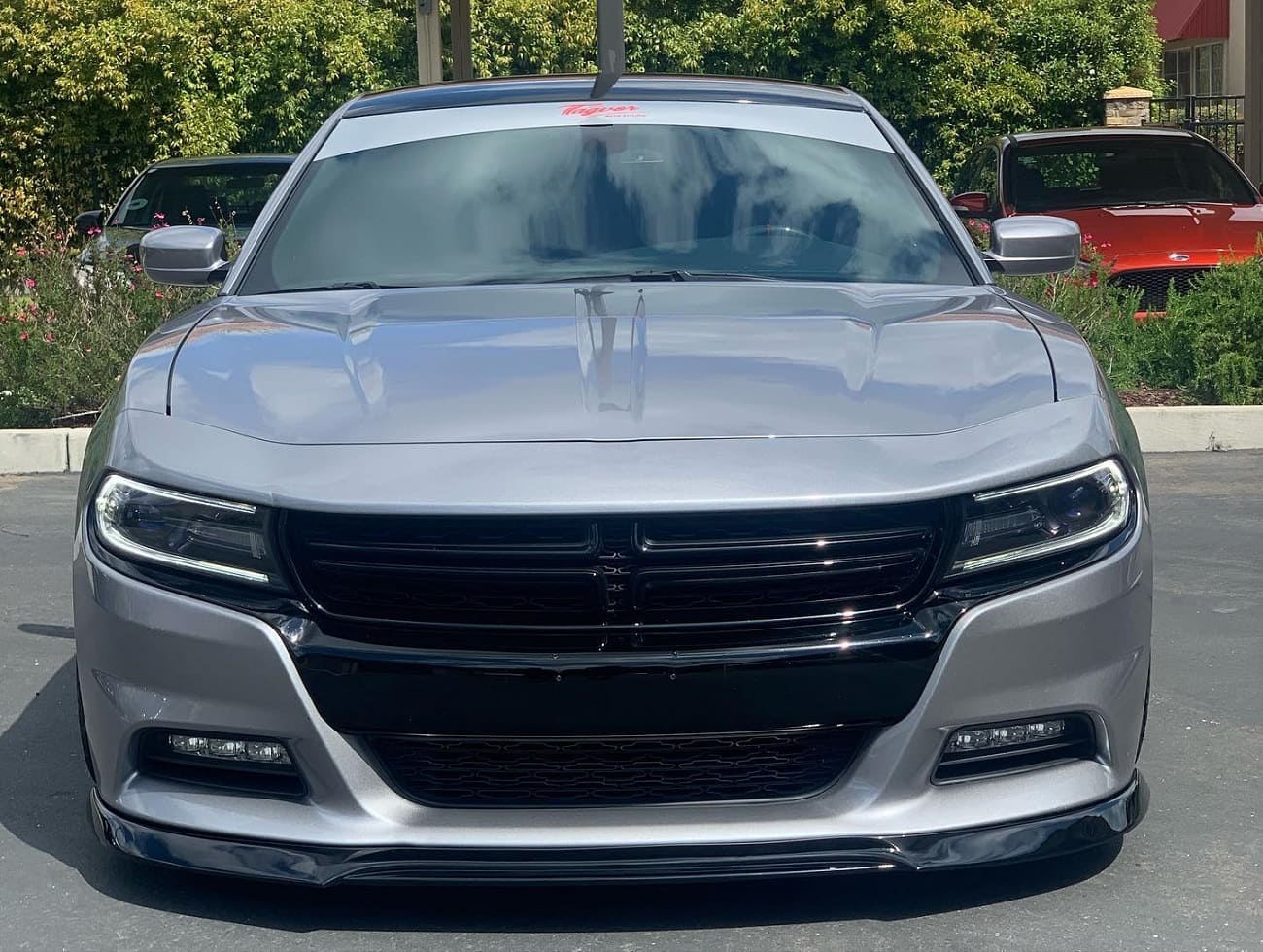
Is PPF Self-Healing?
SunTek's paint protection film includes elastomer polymer, a self-healing agent that absorbs debris or rocks and repairs damages in the film over time. The idea behind self-healing synthetic materials stems from our body's ability to heal itself. Researchers have developed highly stretchable and autonomous healing that corrects any damages you might get from debris.
PPF typically needs heat to help with this process, although studies are trying to find other ways that it can heal and repair. Your paint has some protection against scratches and chips, but it does not possess the same durability and resistance that an outer layer can provide.
This outer layer includes many small layers that line, adhere to, and protect your vehicle. It consists of an adhesive, polyurethane layer, and a clear coat. Heat brings PPF into its lowest energy, where it smooths out any dents or scratches.
Are All PPFs Self-Healing?
When purchasing a PPF for your vehicle, you want to ensure that you are getting the very best on the market that will last for years to come. While PPFs are designed with self-healing in mind, not all are the same, and you should look for thicker PPF materials for the best result. Additionally, check out PPFs with elastomer since this is the primary polymer that heals.
Improperly stretched PPFs can create weakened areas in the film and reduce effective thickness. For that reason, you should never try and install PPFs yourself since you can impact their effectiveness. Instead, choose a professional installation team who can determine what your vehicle needs and its appropriate thickness.
Do Ceramic Coatings Affect PPFs?
Now that you know how PPFs self-heal, do ceramic coatings impact their effectiveness? Ceramic coatings are a great way to improve durability with auto paint protection.
Ceramic coatings should only be applied after a PPF. It can help prevent solvent and water penetration, and most importantly, it does not negatively impact PPFs self-healing properties.
Ceramic coatings and self-healing PPFs can still have stains. It does not indicate that there is damage to the metal or paint. The experts at Ultimate Film Solutions suggest using isopropyl alcohol with a microfiber cloth.
If that doesn't do the trick, you can use mildly abrasive wax. You should only use mildly abrasive wax once every 12 to 18 months, so ask the professionals if you start noticing any defects sooner.
Protect Your Vehicle This Summer
As you prep for the hot summer months, now is an ideal time to get your vehicle a paint protection film. A PPF uses self-healing properties under heat that smooth out imperfections caused by debris or rocks that scratch or dent the surface of your car.
The clear film can give your car a new and glossy finish which can boost resale value and improve aesthetics. At Ultimate Film Solutions, we are specialized in paint protection films for any car type and have some of the best warranties in class.
Check out our website for a free estimate today!

